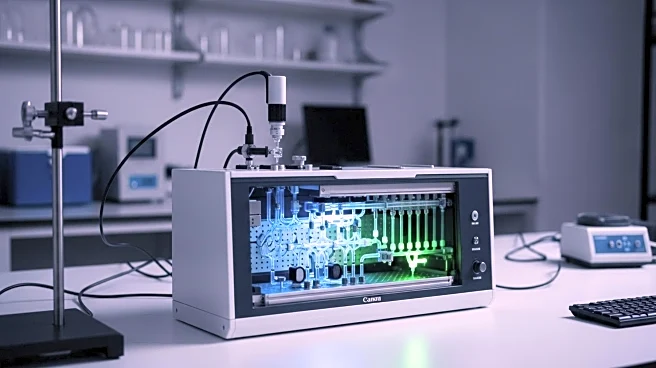What's Happening?
Researchers at the Terasaki Institute, led by Dr. Vadim Jucaud, have developed a microfluidic-based biosensing platform to monitor monoclonal antibody secretion dynamics in real-time. This innovation aims to make monoclonal antibody production more efficient and cost-effective, addressing the global demand for these biotherapeutics. The platform uses a microfluidic design to minimize culture volume and concentrate antibodies, enabling rapid characterization of antibody secretion within one hour. This technology allows for precise comparison of cell lines and optimization of production methods, potentially transforming the manufacturing process.
Why It's Important?
Monoclonal antibodies are crucial for treating various diseases, including cancer and autoimmune disorders. The new biosensing platform offers a significant advancement in biomanufacturing by providing real-time monitoring of antibody production, which is currently reliant on end-point assays. This precision in tracking secretion dynamics can lead to more efficient manufacturing processes, reducing costs and making these therapies more accessible to patients. The platform's ability to identify high-secreting cell lines early in the process could revolutionize the scale-up of monoclonal antibody production, driving down costs and expanding availability.
What's Next?
Dr. Jucaud's team anticipates that the platform will support both fundamental research and industrial-scale biomanufacturing. The rapid, accurate, and scalable design is expected to meet the global need for antibody-based diagnostics and therapies. The researchers aim to streamline production processes, reduce unnecessary costs, and expand the availability of these life-saving therapies to more patients.










